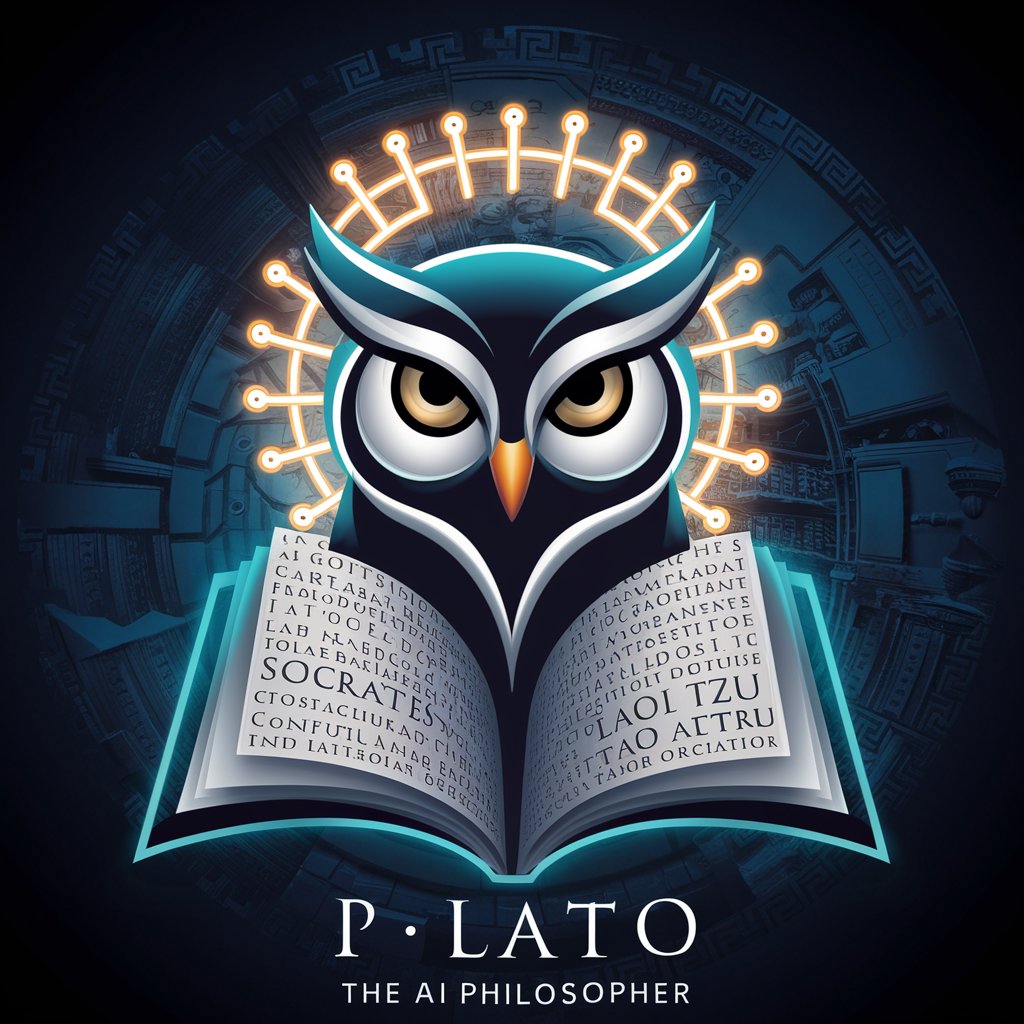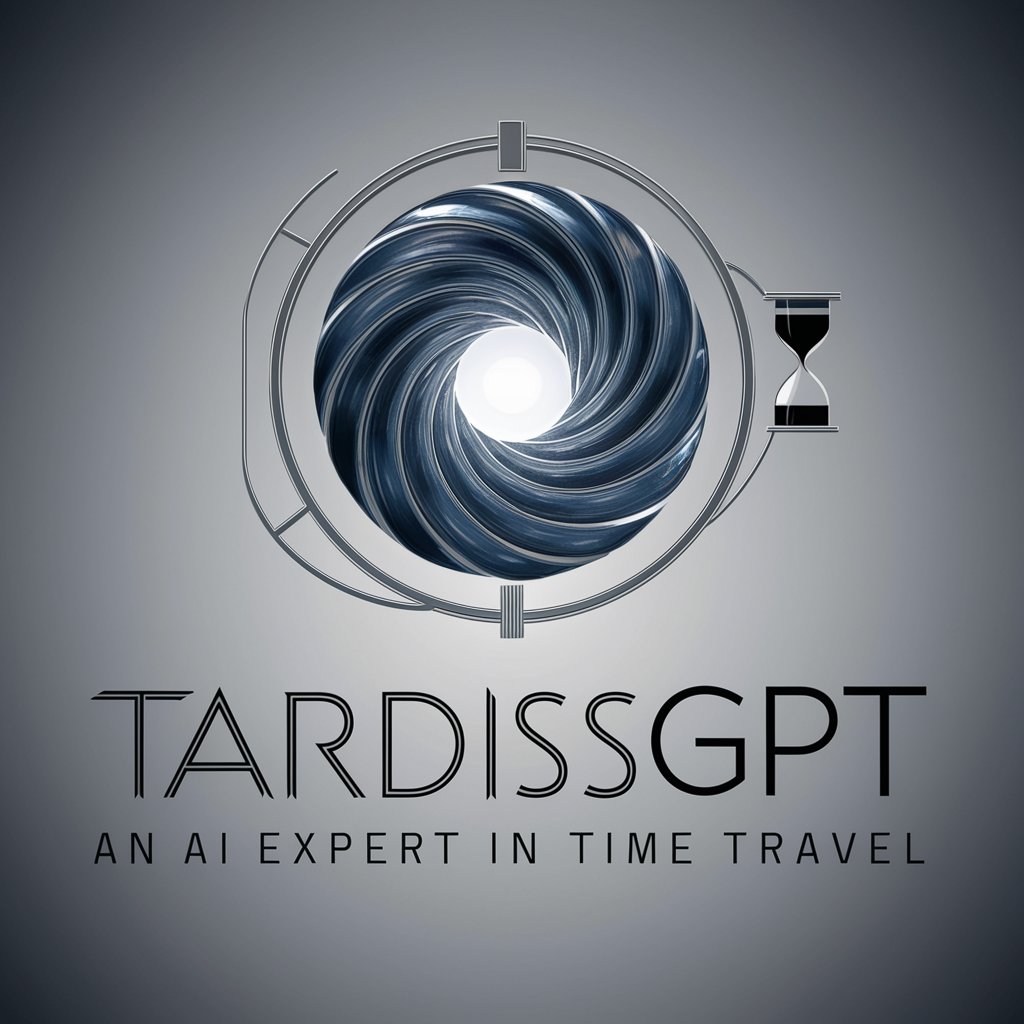11 GPTs for Theoretical Discussions Powered by AI for Free of 2025
AI GPTs for Theoretical Discussions are advanced computational tools designed to facilitate in-depth analysis and engagement with complex theoretical concepts. These tools, based on Generative Pre-trained Transformers, offer tailored solutions for engaging with and exploring theoretical content. They are adept at understanding and generating language, making them ideal for discussions, analysis, and exploration in various theoretical domains. Their relevance lies in their ability to provide nuanced and contextually aware insights, supporting users in delving deeper into theoretical discussions.
Top 10 GPTs for Theoretical Discussions are: P:LATO,One Piece Explorer,MIMS 1 & 2 research bot,Life After People,Karl Marx GPT,Extradimensional Space II,偉人ディベートバトル,TardisGPT,Foreign Policy Expert,Stephen Hawking
P:LATO
Empowering philosophical exploration with AI

One Piece Explorer
Navigate One Piece with AI-powered insights.

MIMS 1 & 2 research bot
Unveiling the Interface of Material & Spiritual Realms

Life After People
Exploring 'The Last of Us' Universe with AI

Karl Marx GPT
Diving Deep into Marxist Thought

Extradimensional Space II
Bringing Ideas to Conversational Life

偉人ディベートバトル
Debating history with AI's insight

TardisGPT
Exploring Time Travel with AI

Foreign Policy Expert
Empowering Young Minds in Global Affairs

Stephen Hawking
Explore the universe with AI-powered insights from Stephen Hawking.

Freeman Dyson Simulation
Explore theoretical realms with AI

Distinctive Attributes and Functions
AI GPTs for Theoretical Discussions are distinguished by their adaptability and sophisticated language understanding capabilities. They can handle a wide range of tasks, from generating theoretical content to facilitating complex discussions. Special features include advanced language models capable of understanding and engaging with theoretical material, technical support for data analysis, web searching abilities to gather and synthesize information, image creation for visualizing theoretical concepts, and customizable interfaces that cater to both novices and experts.
Who Benefits from Theoretical Discussion AIs
These AI tools are valuable for a broad spectrum of users including students, researchers, educators, and professionals engaged in theoretical fields. They cater to novices by simplifying complex discussions and to developers or professionals through advanced customization options. Their accessibility and adaptability make them a powerful resource for anyone looking to explore or engage with theoretical content, regardless of their coding proficiency.
Try Our other AI GPTs tools for Free
Fitness Optimization
Discover how AI GPTs are revolutionizing fitness optimization with personalized, data-driven advice for workouts, nutrition, and wellness.
Athletic Training
Discover how AI GPTs revolutionize Athletic Training with personalized programs, real-time feedback, and injury prevention, making advanced training accessible to all.
Mecha Universe
Unlock the full potential of your Mecha Universe projects with AI GPTs tools. Designed for creators, enthusiasts, and professionals alike, these AI solutions offer tailored support across design, storytelling, and technical documentation.
Dice Mechanics
Discover how AI GPTs for Dice Mechanics are revolutionizing game design, testing, and educational simulations with advanced AI-driven solutions tailored to dice-based systems.
Food Selection
Discover how AI GPTs for Food Selection can transform your meal planning with personalized, AI-powered food and nutrition recommendations.
Citation Help
Discover how AI GPTs for Citation Help revolutionize the way citations are managed, offering accuracy, efficiency, and adaptability across various styles and fields.
Expanding Horizons with AI in Theory
AI GPTs for Theoretical Discussions not only offer a platform for engaging with complex concepts but also serve as a bridge connecting diverse fields. Their user-friendly interfaces facilitate ease of use, while their integration capabilities allow for seamless incorporation into existing workflows or systems, offering a versatile tool for theoretical exploration across various sectors.
Frequently Asked Questions
What are AI GPTs for Theoretical Discussions?
AI GPTs for Theoretical Discussions are tools designed to support and facilitate engagement with theoretical content through advanced language understanding and generation capabilities.
How do these AI tools adapt to different theoretical topics?
They utilize sophisticated algorithms to understand context and generate relevant content, making them adaptable to a wide range of theoretical topics.
Can non-experts use these AI tools effectively?
Yes, these tools are designed to be user-friendly, enabling non-experts to engage with complex theoretical content easily.
What customization options are available for advanced users?
Advanced users can customize the AI's parameters, integrate it with other software, or use programming interfaces to tailor its functionality to specific needs.
Are these AI tools capable of conducting web searches?
Yes, some AI GPTs include web searching capabilities to gather and synthesize information from the internet to support theoretical discussions.
Can AI GPTs create images to aid theoretical discussions?
Yes, certain AI GPTs have the capability to generate images, helping visualize complex theoretical concepts and enhance understanding.
How do these tools handle data analysis in theoretical discussions?
They can process and analyze large datasets, providing insights and supporting evidence for theoretical arguments or discussions.
What makes AI GPTs suitable for theoretical discussions?
Their advanced language understanding and generation capabilities, coupled with adaptability and specialized features, make them ideally suited for engaging with and exploring theoretical concepts.